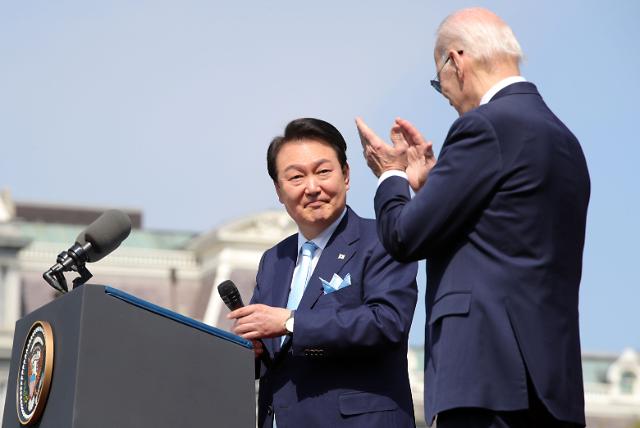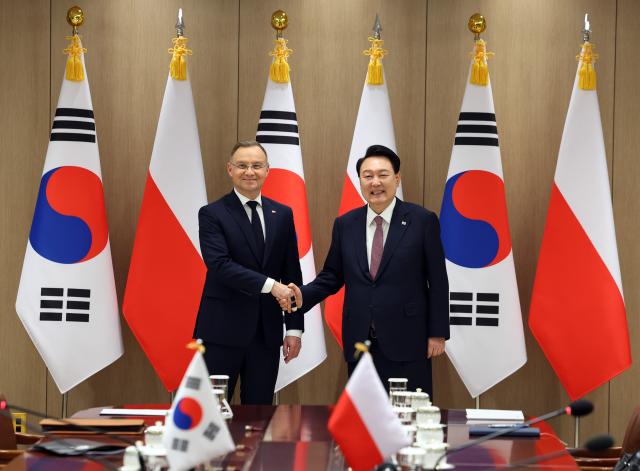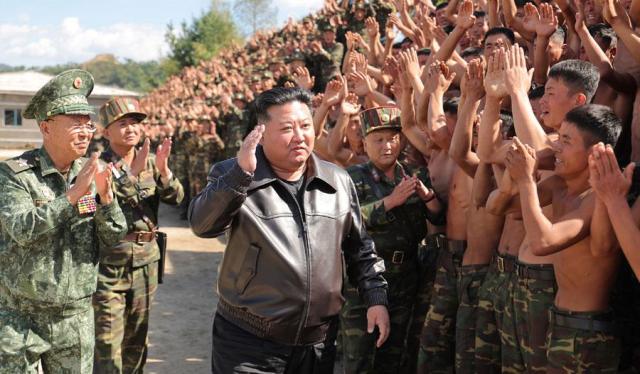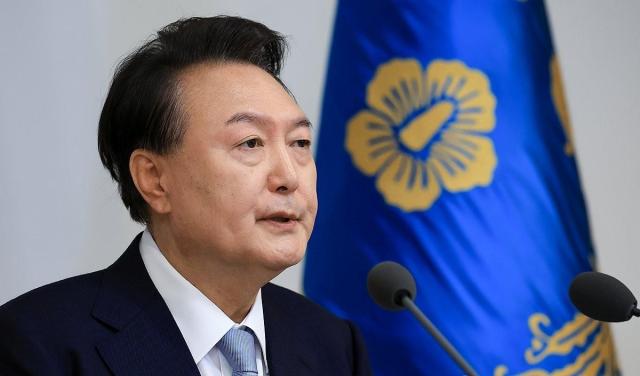
[YONHAP PHOTO]
Outlining the joint statement called "Washington Declaration," Yoon said during a joint press conference held at the White House after his summit meeting with Biden on April 26 (local time) that the two leaders agreed to adopt extended deterrence against North Korea's nuclear and military threats. The scope and scale of joint exercises will be expanded, and regular senior-level defense engagements and dialogues will be maintained to contend with regional threats.
A Nuclear Consultative Group (NGC) will be launched to discuss how to plan for nuclear contingencies and cooperate on the allies' approach to nuclear deterrence. The NGC will convene at the assistant secretary level. The group will meet four times a year and the results of the meeting will be reported to the leaders of South Korea and the U.S.
To enhance South Korea's preparedness for Pyongyang's nuclear threat scenarios, Washington said the U.S. welcomes the participation of South Korean military personnel in U.S. Department of Defense courses and training, which will focus on how the alliance approaches nuclear deterrence on the Korean Peninsula, including through conventional-nuclear integration.
Yoon and Biden also affirmed that South Korea and the U.S. are committed to advancing economic, commercial, and environmental cooperation. While South Korean conglomerates including Hyundai auto group, Samsung Electronics, Hanwha Q Cells, and SK Innovation will build plants worth more than $100 billion across the U.S. and create jobs for American people, Netflix, a popular American over-the-top (OTT) service, promised to invest $2.5 billion in Korean content.
Additionally, the leaders of S. Korea and the U.S. promised to accelerate the augmentation of collaborations between the two countries in the fields of technology, digital, and space cooperation, including security and defense, commercial investment, and space exploration.




